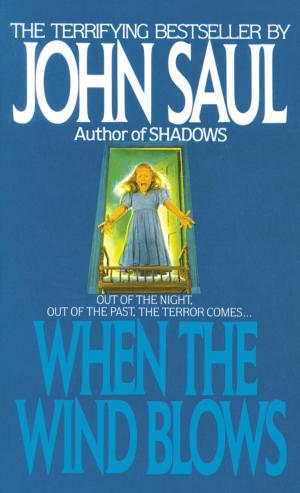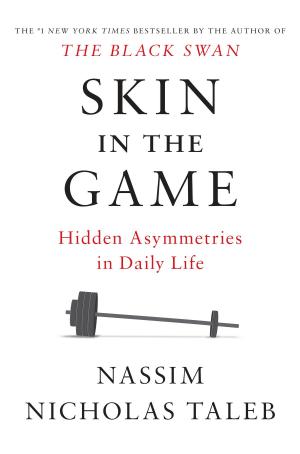Driven Out
The Forgotten War Against Chinese Americans
Nonfiction, Social & Cultural Studies, Social Science, Cultural Studies, Ethnic Studies, Discrimination & Race Relations, History, Americas, United States, 19th Century| Author: | Jean Pfaelzer | ISBN: | 9781588366405 |
| Publisher: | Random House Publishing Group | Publication: | May 29, 2007 |
| Imprint: | Random House | Language: | English |
| Author: | Jean Pfaelzer |
| ISBN: | 9781588366405 |
| Publisher: | Random House Publishing Group |
| Publication: | May 29, 2007 |
| Imprint: | Random House |
| Language: | English |
A NEW YORK TIMES NOTABLE BOOK
The brutal and systematic “ethnic cleansing” of Chinese Americans in California and the Pacific Northwest in the second half of the nineteenth century is a shocking–and virtually unexplored–chapter of American history. Driven Out unearths this forgotten episode in our nation’s past. Drawing on years of groundbreaking research, Jean Pfaelzer reveals how, beginning in 1848, lawless citizens and duplicitous politicians purged dozens of communities of thousands of Chinese residents–and how the victims bravely fought back.
In town after town, as races and classes were pitted against one another in the raw and anarchistic West, Chinese miners and merchants, lumberjacks and field workers, prostitutes and merchants’ wives, were gathered up at gunpoint and marched out of town, sometimes thrown into railroad cars along the very tracks they had built.
Here, in vivid detail, are unforgettable incidents such as the torching of the Chinatown in Antioch, California, after Chinese prostitutes were accused of giving seven young men syphilis, and a series of lynchings in Los Angeles bizarrely provoked by a Chinese wedding. From the port of Seattle to the mining towns in California’s Siskiyou Mountains to “Nigger Alley” in Los Angeles, the first Chinese Americans were hanged, purged, and banished. Chinatowns across the West were burned to the ground.
But the Chinese fought back: They filed the first lawsuits for reparations in the United States, sued for the restoration of their property, prosecuted white vigilantes, demanded the right to own land, and, years before Brown v. Board of Education*,* won access to public education for their children. Chinese Americans organized strikes and vegetable boycotts in order to starve out towns that tried to expel them. They ordered arms from China and, with Winchester rifles and Colt revolvers, defended themselves. In 1893, more than 100,000 Chinese Americans refused the government’s order to wear photo identity cards to prove their legal status–the largest mass civil disobedience in United States history to that point.
Driven Out features riveting characters, both heroic and villainous, white and Asian. Charles McGlashen, a newspaper editor, spearheaded a shift in the tactics of persecution, from brutality to legal boycotts of the Chinese, in order to mount a run for governor of California. Fred Bee, a creator of the Pony Express, became the Chinese consul and one of the few attorneys willing to defend the Chinese. Lum May, a dry goods store owner, saw his wife dragged from their home and driven insane. President Grover Cleveland, hoping that China’s 400,000 subjects would buy the United States out of its economic crisis, persuaded China to abandon the overseas Chinese in return for a trade treaty. Quen Hing Tong, a merchant, sought an injunction against the city of San Jose in an important precursor to today’s suits against racial profiling and police brutality.
In Driven Out, Jean Pfaelzer sheds a harsh light on America’s past. This is a story of hitherto unknown racial pogroms, purges, roundups, and brutal terror, but also a record of valiant resistance and community. This deeply resonant and eye-opening work documents a significant and disturbing episode in American history.
A NEW YORK TIMES NOTABLE BOOK
The brutal and systematic “ethnic cleansing” of Chinese Americans in California and the Pacific Northwest in the second half of the nineteenth century is a shocking–and virtually unexplored–chapter of American history. Driven Out unearths this forgotten episode in our nation’s past. Drawing on years of groundbreaking research, Jean Pfaelzer reveals how, beginning in 1848, lawless citizens and duplicitous politicians purged dozens of communities of thousands of Chinese residents–and how the victims bravely fought back.
In town after town, as races and classes were pitted against one another in the raw and anarchistic West, Chinese miners and merchants, lumberjacks and field workers, prostitutes and merchants’ wives, were gathered up at gunpoint and marched out of town, sometimes thrown into railroad cars along the very tracks they had built.
Here, in vivid detail, are unforgettable incidents such as the torching of the Chinatown in Antioch, California, after Chinese prostitutes were accused of giving seven young men syphilis, and a series of lynchings in Los Angeles bizarrely provoked by a Chinese wedding. From the port of Seattle to the mining towns in California’s Siskiyou Mountains to “Nigger Alley” in Los Angeles, the first Chinese Americans were hanged, purged, and banished. Chinatowns across the West were burned to the ground.
But the Chinese fought back: They filed the first lawsuits for reparations in the United States, sued for the restoration of their property, prosecuted white vigilantes, demanded the right to own land, and, years before Brown v. Board of Education*,* won access to public education for their children. Chinese Americans organized strikes and vegetable boycotts in order to starve out towns that tried to expel them. They ordered arms from China and, with Winchester rifles and Colt revolvers, defended themselves. In 1893, more than 100,000 Chinese Americans refused the government’s order to wear photo identity cards to prove their legal status–the largest mass civil disobedience in United States history to that point.
Driven Out features riveting characters, both heroic and villainous, white and Asian. Charles McGlashen, a newspaper editor, spearheaded a shift in the tactics of persecution, from brutality to legal boycotts of the Chinese, in order to mount a run for governor of California. Fred Bee, a creator of the Pony Express, became the Chinese consul and one of the few attorneys willing to defend the Chinese. Lum May, a dry goods store owner, saw his wife dragged from their home and driven insane. President Grover Cleveland, hoping that China’s 400,000 subjects would buy the United States out of its economic crisis, persuaded China to abandon the overseas Chinese in return for a trade treaty. Quen Hing Tong, a merchant, sought an injunction against the city of San Jose in an important precursor to today’s suits against racial profiling and police brutality.
In Driven Out, Jean Pfaelzer sheds a harsh light on America’s past. This is a story of hitherto unknown racial pogroms, purges, roundups, and brutal terror, but also a record of valiant resistance and community. This deeply resonant and eye-opening work documents a significant and disturbing episode in American history.















